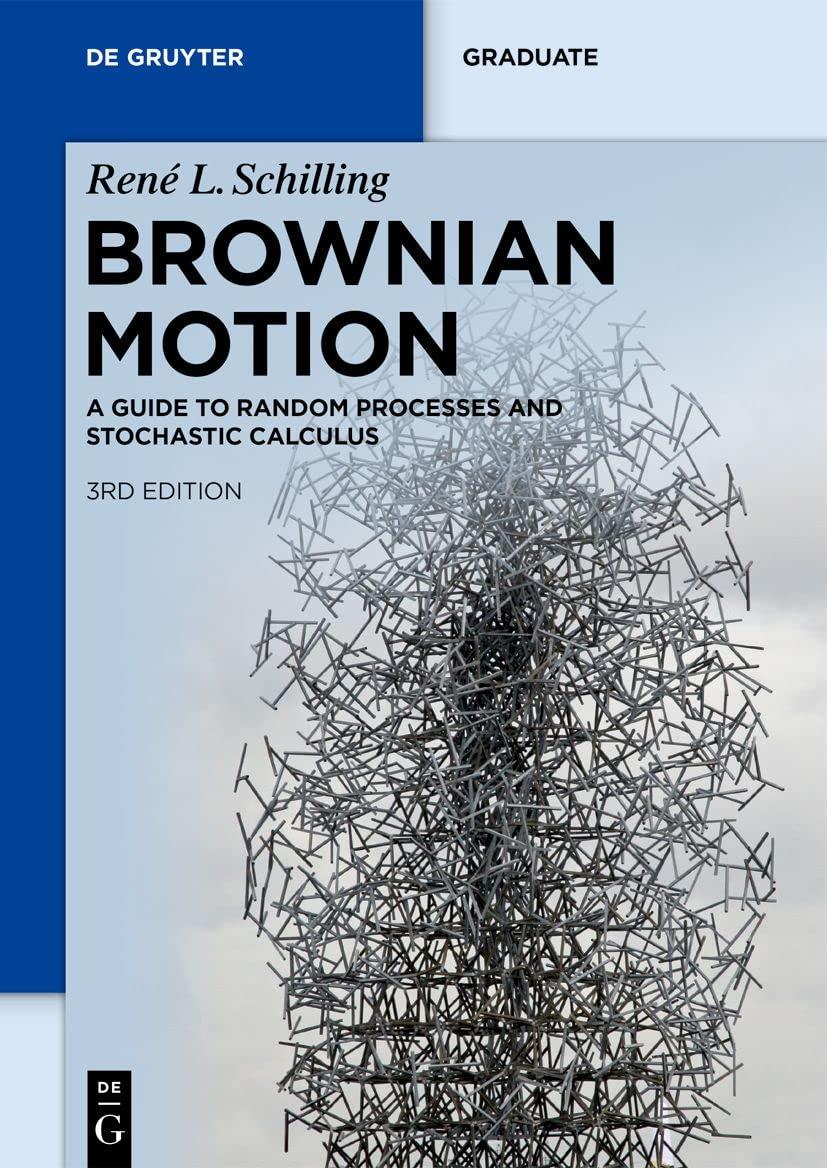Let (p(t, x)=(2 pi t)^{-d / 2} exp left(-|x|^{2} /(2 t)ight), x in mathbb{R}^{d}, t>0), be the
Question:
Let \(p(t, x)=(2 \pi t)^{-d / 2} \exp \left(-|x|^{2} /(2 t)ight), x \in \mathbb{R}^{d}, t>0\), be the transition density of a \(d\)-dimensional Brownian motion.
a) Show that \(p(t, x)\) is a solution for the heat equation, i.e.
\[\frac{\partial}{\partial t} p(t, x)=\frac{1}{2} \Delta_{x} p(t, x)=\frac{1}{2} \sum_{j=1}^{d} \frac{\partial^{2}}{\partial x_{j}^{2}} p(t, x), \quad x \in \mathbb{R}^{d}, t>0 .\]
b) Let \(f \in \mathcal{C}^{1,2}\left((0, \infty) \times \mathbb{R}^{d}ight) \cap \mathcal{C}\left([0, \infty) \times \mathbb{R}^{d}ight)\) be such that for some constants \(c, c_{t}>0\) and all \(x \in \mathbb{R}^{d}, t>0\)
\[|f(t, x)|+\left|\frac{\partial f(t, x)}{\partial t}ight|+\sum_{j=1}^{d}\left|\frac{\partial f(t, x)}{\partial x_{j}}ight|+\sum_{j, k=1}^{d}\left|\frac{\partial^{2} f(t, x)}{\partial x_{j} \partial x_{k}}ight| \leqslant c_{t} e^{c|x|} .\]
Show that \[\int p(t, x) \frac{1}{2} \Delta_{x} f(t, x) d x=\int f(t, x) \frac{1}{2} \Delta_{x} p(t, x) d x .\]
Step by Step Answer:

Brownian Motion A Guide To Random Processes And Stochastic Calculus De Gruyter Textbook
ISBN: 9783110741254
3rd Edition
Authors: René L. Schilling, Björn Böttcher





